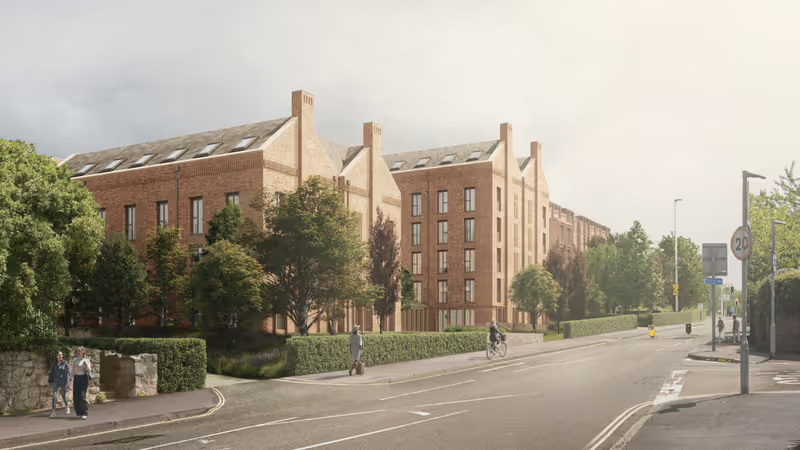A planning inspector has overturned the city council’s decision to refuse planning permission for a 26-bed student accommodation block on the site of a garage in St James.
The Howell Road garage redevelopment application prompted significant local opposition following its submission two years ago.
The council planning committee then refused it in March last year on community balance grounds, with well over half the residential property in St James already occupied by students, despite a council planning officer’s approval recommendation.
Developer Sam Williams submitted an appeal against the decision to the planning inspectorate, then applied to the council for outline permission to build an apparently identical block of nine flats on the same site.
The council planning committee approved the flats in September by five votes to four despite concerns that there was nothing to prevent up to 30 students occupying the flats as HMOs.
The developer made clear that he would not withdraw his appeal against the previous refusal were the committee to approve his application for the flats.
 Illustrative elevation of Howell Road flats granted planning permission.
Illustrative elevation of Howell Road flats granted planning permission.
Source: Exeter City Council.
The planning inspector’s decision refers to the Exeter Local Plan’s failure to define, in its purpose built student accommodation policy, what any of “over-concentration”, “area of the city” or “imbalance in the local community” might mean.
It also says the council did not provide sufficient information about purpose built student accommodation in St James, or other areas, to draw conclusions about its over-concentration, other than that the four student blocks within 250 metres of the Howell Road that the council did mention would not amount to this.
It then considers the St James Neighbourhood Plan, which aims to improve the social balance of a part of the city that has borne the brunt of the impact of the extraordinary increase in University of Exeter student numbers, by restricting new student accommodation development.
 Illustrative elevation of Howell Road student block granted planning permission at appeal.
Illustrative elevation of Howell Road student block granted planning permission at appeal.
Source: Exeter City Council.
However it appears to suggest that as neither the introduction to the neighbourhood plan’s community section, nor its definition of what would constitute “community balance”, explicitly mentions purpose built student accommodation, its community balance aims may be less relevant in considering this form of student housing.
It then says, despite acknowledging that the area around the Howell Road garage is composed of “intact streets of traditional terraced, semi-detached and detached forms of 2-3 storey residential development” that, because the garage itself is not residential and there is a brick wall opposite and another along the road, the area “is not predominantly characterised by intact streets of traditional residential development”.
Consequently it concludes that the student block application complies, rather than conflicts, with the neighbourhood plan’s policy on purpose built student accommodation that provides more than ten bedspaces, adding that as this policy doesn’t explicitly mention community balance it is not relevant, even though the policies either side of it in the plan’s community section do.
Several conditions apply to the resulting planning approval. These include the requirement that the council agrees a management plan covering occupation, staffing, student discipline, car ownership and parking, security and arrival/departure restrictions before the development is occupied.
However they also allow the developer to rent out the block’s 26 bedspaces as short-term AirBnB-style lets to anyone who wants them during July and August each year.










